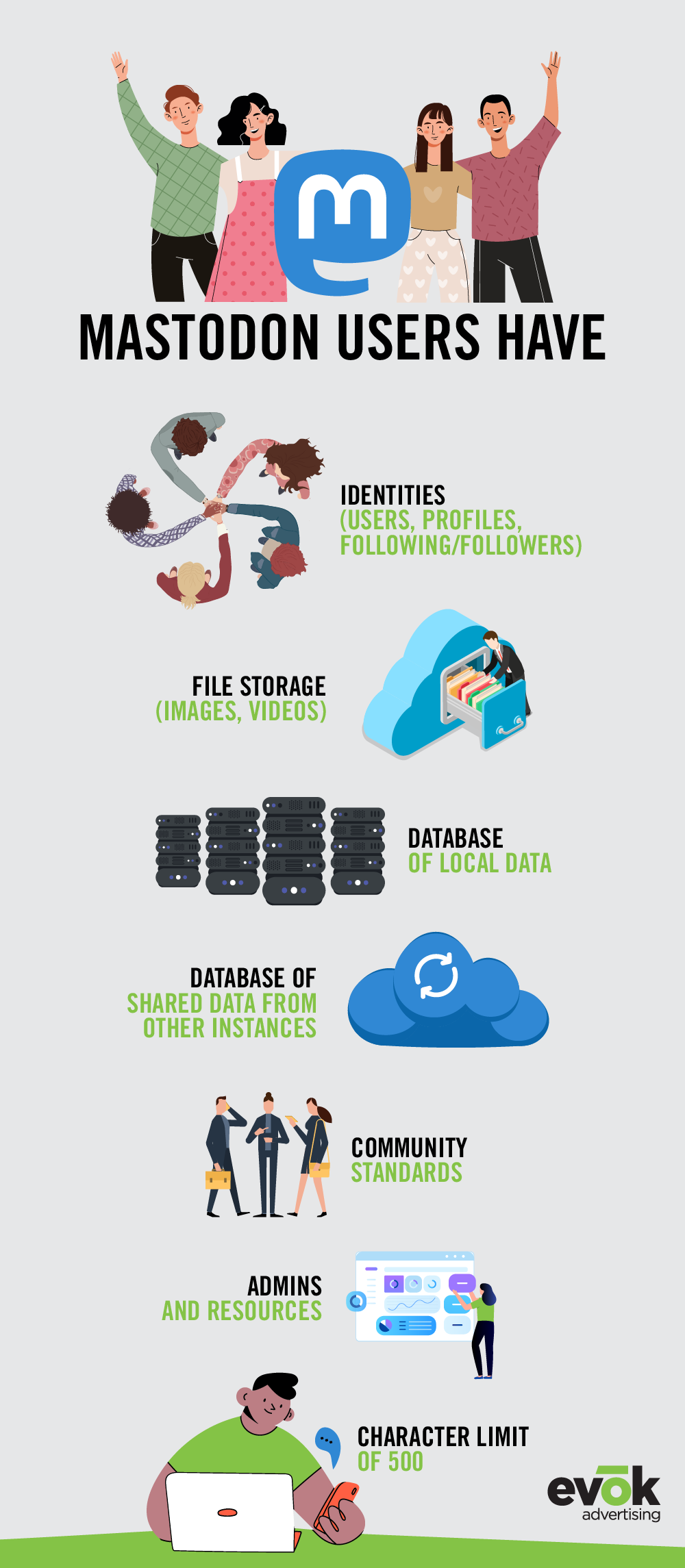
Advertising in Mastodon: Everything You Need to Know About This New Social Media Platform
Mastodon is a new social media platform that offers a unique opportunity for brands to connect with a highly engaged and dedicated user base. Mastodon was created in 2016 by a developer named Eugen Rochko as an alternative to centralized social media platforms like Twitter, Facebook, and Instagram. Mastodon can be seen as an alternative to Twitter, but it’s not a direct replacement, as it offers a different experience with different trade-offs. It aims to give users more control over their data and the content they see.
Since the platform’s first version was launched, it has grown and evolved to become one of the most popular decentralized social media platforms. With its decentralized structure, Mastodon allows for an intimate and community-driven experience, which can be leveraged by brands to build deeper connections with their target audience.

The Mastodon project is an open-source software, which means that it is freely available for anyone to use, modify and distribute. Mastodon’s open-source nature means it has more flexibility for brands to create custom integrations and campaigns, which can help generate high engagement and ROI levels. It also means that the user base on Mastodon is relatively smaller than other social media platforms like Twitter, so it may not be the right fit for all brands or campaigns. Additionally, Mastodon is an “ad free” platform and does not allow paid initiatives at this time.
Mastodon is different from other social media platforms in a few key ways. Firstly, as mentioned earlier, it is decentralized and federated, which means it is not controlled by a single company or organization. Instead, it is made up of many independently-run servers that communicate with each other. This decentralization gives users more control over their data and allows for greater diversity in terms of content moderation and community guidelines.
Mastodon allows for greater control over privacy and content moderation, as each server is run by a different administrator and can have its own set of rules. Users can choose to make their accounts private and only allow certain people to follow them, and they can also choose only to view posts from people they follow.
Mastodon also allows users to block other users and report posts that violate community guidelines. Another key difference is that Mastodon allows for more customization in terms of how the platform looks and feels. Users can choose from a wide variety of themes and layouts to personalize their experience. This platform allows users to have greater control over the format of posts. It supports a wide range of media types, including images, videos, GIFs, and polls, and also allows custom emojis and hashtags.

While Mastodon has many features and benefits, there are also some drawbacks to consider. One of the main drawbacks is that Mastodon has a smaller user base compared to other social media platforms like Twitter, Facebook, and Instagram. This means there may be fewer people to interact with, and the content available may be more limited. Additionally, the smaller user base can make it harder to find people with similar interests or who live in the same area. Brands that migrate from Twitter and other platforms might find it difficult to reach their target audience since they cannot advertise their products and services as they did on other platforms through monetization.
Mastodon is also not as user-friendly as some other platforms. It has a steeper learning curve and may be more complex for new users to navigate. The interface can be a bit overwhelming for new users as it has a lot of features and is less intuitive than other platforms. Additionally, Mastodon can be less stable than other platforms, as it is not backed by a large corporation. This means that servers may go down or be unavailable at times, and there may be less oversight of the platform as a whole.
Since Mastodon is decentralized, the level of content moderation and community guidelines can vary greatly depending on the server you choose to join, so it’s harder to ensure a consistent experience. Some servers have very strict guidelines and policies, while others may be more permissive, which can lead to a lack of consistency and confusion for users.
Even with a few drawbacks that come naturally as a new social media platform finds its footing, Mastodon shows promise and offers a unique set of opportunities for brands to connect with their audience. However, it may not be right for all content strategies. It may be more appealing to users who value privacy, control over data, and content moderation, but also can be less appealing to those who prioritize a larger user base and a more user-friendly interface.
Ready to dig deeper? Give us a call. Reach out to to us for more information, and to see if this platform is the right fit for your brand!